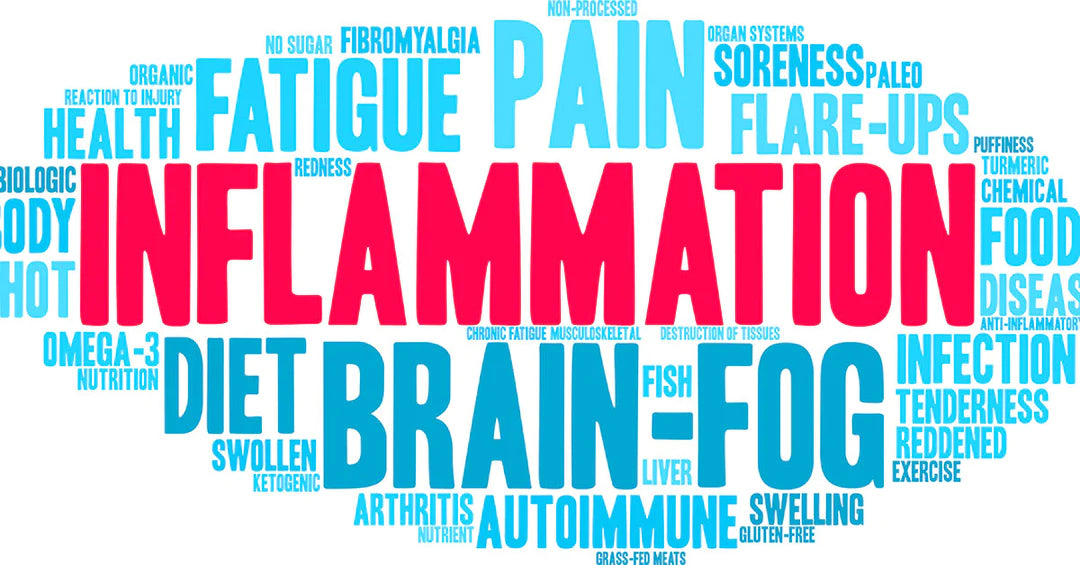In recent years, the frequency of health issues stemming from chronic inflammation has risen in the general populace. In response to this rising tide of health concerns, researchers and health experts have turned their attention to the the father of modern medicine, Hippocrates – they’re looking to the gut to help prevent and alleviate issues of chronic inflammation.
The gut wall lining is one of the bodies first lines of defense against undesirable pathogens. A thin mucin layer and the “tight junctions” between the cells of the gut wall act as a barrier only allowing nutrients to go thru. Many cases of chronic inflammation are understood to start when undesirable “antigens” in the gut leak into your bloodstream – a “leaky gut”. Once present in the blood, your immune system triggers a response to fight what it perceives as “foreign bodies”. This in turn triggers what you feel as chronic inflammation and can even cause insulin and leptin resistance, which may result in type 2 diabetes, obesity, and fatty liver disease.
What is inflammation? Inflammation is simply your body’s response to outside cellular matter, such as viruses, toxins, or cell injury. Oftentimes, inflammation is a necessary and helpful response to bodily harm, like after being bitten by an insect or suffering a more direct injury to the body. Inflammation helps reduce the risk of pathogens like bacteria and viruses from entering the bloodstream and wreaking greater havoc, such as serious illness or, rarely, death. However, this helpful, acute inflammation differs from harmful chronic inflammation. Chronic inflammation is long term and occurs in unneeded areas, such as your blood vessels, coronary arteries, or brain structures. When areas such as these become inflamed for long periods of time, the results can often lead to serious health conditions which include obesity, heart disease, type 2 diabetes, metabolic syndrome, depression, and Alzheimer’s.
Though the exact causes of chronic inflammation are unknown, many advancements in the area have been made over the past few years. Today, the cause is thought to stem from bacteria found in the gut, collectively referred to as gut flora. Many of the bacteria found here are helpful and provide essential duties to digestion and general health, but there are also some which can cause serious harm if they become too numerous. For example, some of the more harmful bacteria, called gram-negative bacteria, contain lipopolysaccharides, which are large, fatty molecules. These are commonly referred to as endotoxins. If too many endotoxins exist in the gut at one time, they can trigger immune reactions which can lead to a variety of symptoms such as depression, muscle pain, or fever.
These endotoxins are even more harmful if they slip into the bloodstream. There are two main ways this can happen. First, the toxins can be carried into the bloodstream through dietary fat. This process would occur right after a meal, as the body doesn’t always properly screen your food intake for harmful foreign substances. These toxins can also invade the bloodstream perpetually, leaking past the walls of your gut by bypassing its sturdy and tight walls of defense. This process is sinister and sneaky because the toxins are not strong enough to trigger symptoms such as fever or cough, but can still trigger chronic inflammation, which causes more serious issues over longer periods of time. This process of routinely leaking endotoxins into the bloodstream is referred to as “leaky gut” and may hold the key to fighting diet-induced chronic inflammation. If endotoxin levels increase to two or three times, the condition is known as metabolic endotoxemia.
Leaky gut has been replicated in many studies wherein endotoxins are injected directly into the bloodstream of animals and humans. These injections result in swift insulin resistance, a tell-tale sign of metabolic syndrome and type 2 diabetes. Alongside these studies, researchers have been conducting dietary studies to determine the types of foods which can lead to inflammation. In animals, a high-fat diet has been linked to endotoxemia, inflammation, and obesity. In humans, a “Western diet” high in fat led to a 71% increase in endotoxin levels, contrasted with a 31% decrease in levels in people who partook in a specialized, low-fat diet. It should be noted however that the cause of rising endotoxin levels could also be attributed to refined carbs and processed foods common in Western diets. Gluten is also being looked into as a contributor of inflammation, due to effects on the signaling molecule zonulin. A healthy high-fat, low-carb diet is still viewed as acceptable as long as processed foods are kept to a minimum and room is made for plenty of fiber. A long-term study in monkeys supports this thesis.
While researchers are still looking into the exact cause and treatment of chronic inflammation, it appears that processed foods high in fat and differing gut makeups are keys to understanding this new national problem. Other contributors currently being researched are over-medicating, chronic stress, exposure to other toxins such as pesticides and herbicides, genetic indicators such as parents’ gut health and diet during pregnancy, and body composition. No matter the cause, the elimination of processed foods, as well as simple steps like a healthy diet and adequate exercise, should be taken to ensure a strong, healthy, impermeable gut.
References & Disclaimers
✝✝This noted statement is based on independent research and is not necessarily the opinion of the author
